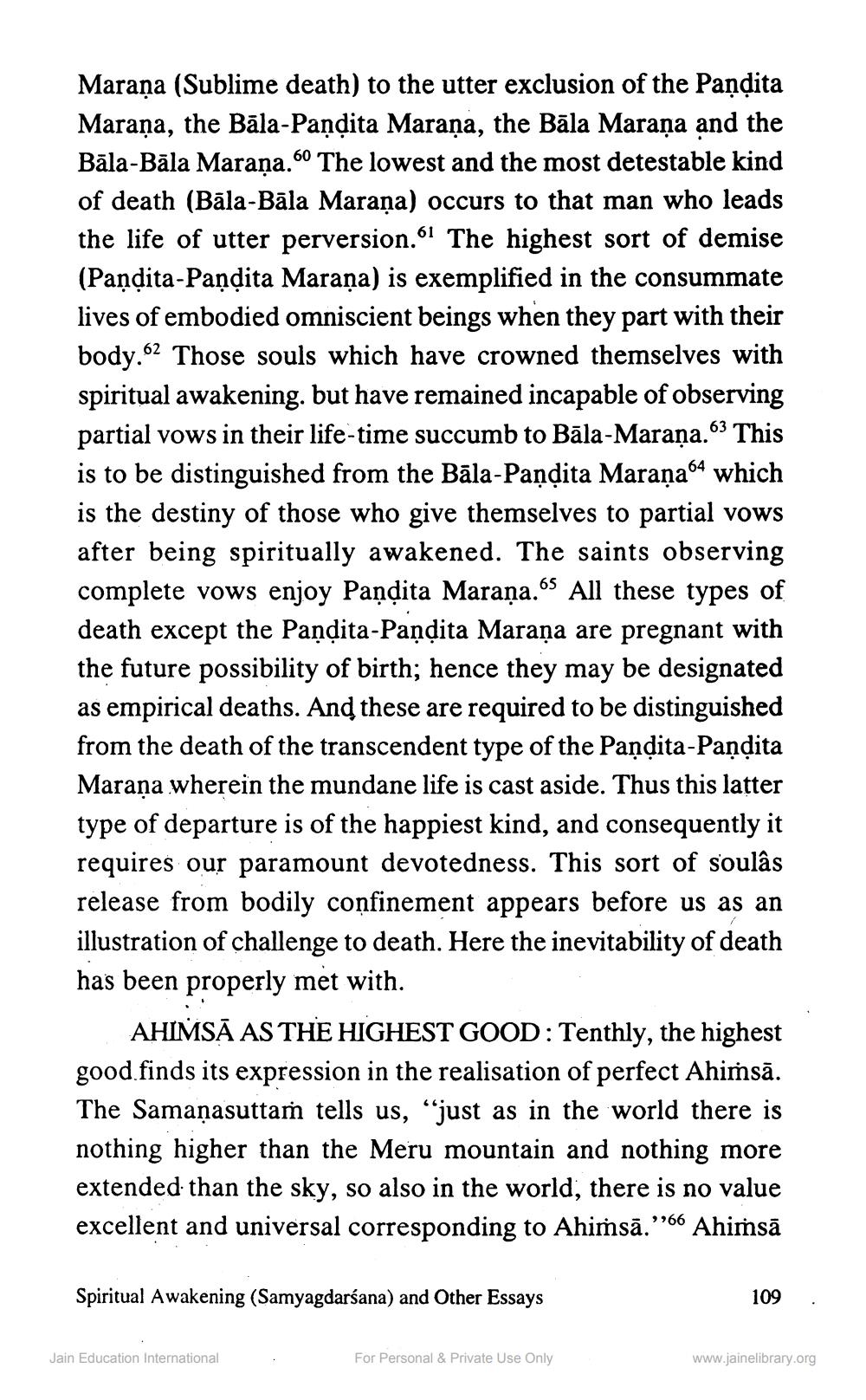________________
Maraņa (Sublime death) to the utter exclusion of the Pandita Marana, the Bāla-Pandita Maraña, the Bāla Maraña and the Bāla-Bāla Maraña.60 The lowest and the most detestable kind of death (Bāla-Bāla Maraṇa) occurs to that man who leads the life of utter perversion.61 The highest sort of demise (Pandita-Pandita Maraņa) is exemplified in the consummate lives of embodied omniscient beings when they part with their body. 62 Those souls which have crowned themselves with spiritual awakening. but have remained incapable of observing partial vows in their life-time succumb to Bāla-Maraņa.63 This is to be distinguished from the Bāla-Pandita Maraņa64 which is the destiny of those who give themselves to partial vows after being spiritually awakened. The saints observing complete vows enjoy Pandita Marana.6s All these types of death except the Pandita-Pandita Maraņa are pregnant with the future possibility of birth; hence they may be designated as empirical deaths. And these are required to be distinguished from the death of the transcendent type of the Pandita-Pandita Maraṇa wherein the mundane life is cast aside. Thus this latter type of departure is of the happiest kind, and consequently it requires our paramount devotedness. This sort of soulâs release from bodily confinement appears before us as an illustration of challenge to death. Here the inevitability of death has been properly met with.
AHIMSĀ AS THE HIGHEST GOOD: Tenthly, the highest good finds its expression in the realisation of perfect Ahiṁsā. The Samaņasuttam tells us, “just as in the world there is nothing higher than the Meru mountain and nothing more extended than the sky, so also in the world, there is no value excellent and universal corresponding to Ahiṁsā.” 66 Ahiṁsā
Spiritual Awakening (Samyagdarśana) and Other Essays
109
.
Jain Education International
For Personal & Private Use Only
www.jainelibrary.org




